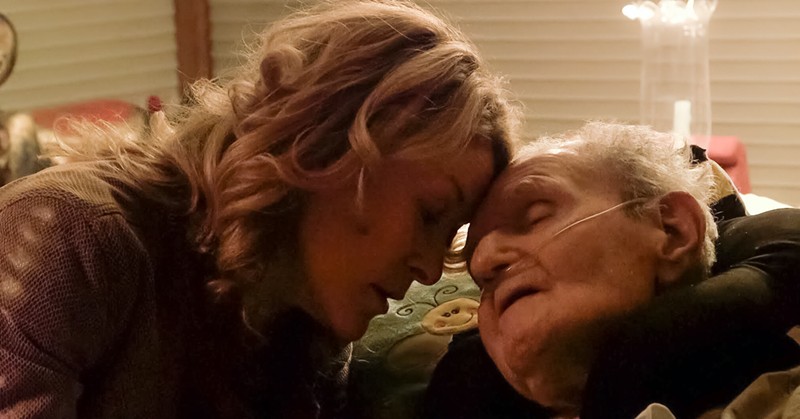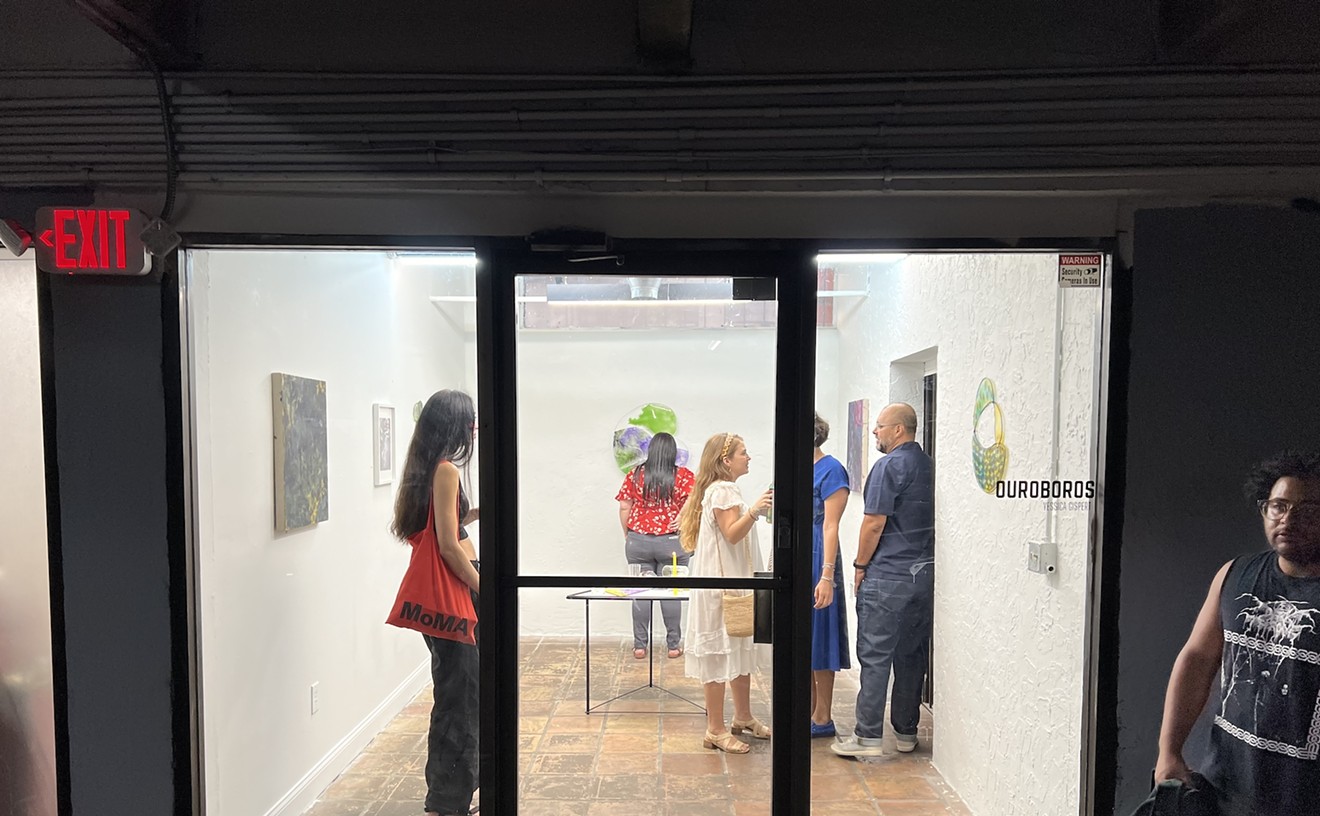The idea of family becomes magnified as the holiday season approaches. In a similar vein, as Thanksgiving approaches, Coral Gables Art Cinema is screening Last Flight Home, a deeply personal documentary from filmmaker Ondi Timoner. It should be noted that this is the most somber of family portraits, as the film chronicles the final days of the family patriarch, Eli Timoner. At the same time, it functions as a Thanksgiving film as it explores a family coming together to express their thankfulness to Eli’s presence and impact on their own lives.
Ondi, from Miami and now located in Los Angeles, is the only nonfiction filmmaker to win the Sundance Grand Jury Prize in Documentary twice — in 2014 for Dig!, which examines the rivalry between two aught bands, the Dandy Warhols and the Brian Jonestown Massacre; and in 2009 for We Live in Public, about the rise and fall of internet pioneer Josh Harris.
In her latest documentary, Ondi turns the camera on her father, Eli, another rise-and-fall story of a larger-than-life figure in her own life. The results are mixed, as making a documentary about one's own family can be a double-edged sword. Issues of objectivity and subjectivity, what is personal and what is universal, linger throughout the film. Its verité style sometimes straddles home video, but Ondi’s investment also produces an intimate, unfiltered, and unflinching look at one family’s history and mortality.
The film opens at a Los Angeles medical center with voiceovers of phone conversations. Haunting much of the film is the COVID-19 pandemic, especially the ways it impacted families and our relationship to death. Early on, Eli expresses his desire to die. The film captures the final two weeks of Eli’s life as he exercises his right to die under California’s End of Life Option Act, which currently is available only to terminally ill adults. However, this is not a documentary about end-of-life rights or assisted suicide, as it never really explores any consenting voices.
It does capture some of the fascinating bureaucratic and mundane details of the process. Eli must go through a carefully calibrated process to end his life that both empowers and frustrates him. The film is an excellent introduction for anyone going through or planning to go through a similar process. The process of finding the right-sized cup and straw length to allow Eli to administer the final concoction himself or the stipulation that it must be finished within two minutes — not a second over — was illuminating. It is a process that is so personal yet also dictated by carefully calibrated policies with medical, legal, and political implications. Though the film forgoes these thorny issues for a more personal approach and scope.
While Eli is front and center for most of the film, his backstory does not appear until more than 20 minutes into the film. A businessman and venture capitalist who founded Air Florida, Eli and his family’s life changed significantly after he experienced a stroke caused by a massage gone wrong. In declining health, he was forced to leave the business, which the filmmaker argues was discriminatory. One moment that gets at the heart of Eli is when he says he does not want total freedom — he wants responsibility. There is a sense his decline in health and the failure of Air Florida is something that haunts him in his final days. He now views himself as a burden to those around him but is also equally fed up with being “maneuvered” by others and not in control of his own body.
While his body is failing, his mind remains sharp and lucid as he tells jokes and provides counsel to the family around him. He advises a grandchild that the best way to live life is having “respect for the people you don’t know, and love for the people that you do know,” while also harboring a deep resentment of Donald Trump, who exemplifies the opposite. In many ways, Eli is a perfect subject for the right to end one’s own life as he remains persistent and unwavering in his decision. But just as the film is not exactly about the right to end one’s life, it also isn’t exactly about Eli.
The most interesting aspect of Last Flight Home is those around Eli. He is resolute in his decision, and the family views it as a blessing that they know what is coming and can use this time to be "conscious" about his impending departure. It is the family dynamics that are the best part of the documentary but feel underdeveloped or underexplored. One such avenue is Eli’s relationship with his daughter Rachel, who is a rabbi. She remarks that, at this time, he is leaning on her as a rabbi at the exact moment she wants to be a daughter. Likewise, Ondi is upset that her mother spends her time telling stories. Of course, Ondi just doesn’t want her mother to have any regrets from this time and wants to foster communication between her parents. At the same time, her mother’s desire to narrate seems intrinsically connected to Ondi’s desire to document, but the film doesn’t dive into that curious parallel. There is even a sense that maybe Eli doesn’t exactly like the documentation process but realizes that it’s what his daughter needs to cope with the circumstances.
Perhaps distance, another filmmaker, or even more time, would allow the film to explore these kinds of moments. But, in the end, only Ondi could make this film. There is an admirable, yet messy, immediacy and intimacy to Last Flight Home that will resonate with audiences. It is sad, celebratory, and above all cathartic, a film that forces an audience to confront mortality and prompts one to think about their relationship with loved ones, with death, and with how they want it all to end.
Last Flight Home. Directed by Ondi Timoner. Not rated. 101 minutes. Premieres Friday, November 18 at Coral Gables Art Cinema, 260 Aragon Ave., Coral Gables, 786-472-2249; gablescinema.com. Tickets cost $12.75. Opening reception at 6 p.m. followed by a screening and Q&A with director Ondi Timoner on Friday, November 18. Tickets cost $21.75.
[
{
"name": "Air - MediumRectangle - Inline Content - Mobile Display Size",
"component": "19274298",
"insertPoint": "2",
"requiredCountToDisplay": "2"
},{
"name": "Editor Picks",
"component": "17482312",
"insertPoint": "4",
"requiredCountToDisplay": "1"
},{
"name": "Inline Links",
"component": "18711090",
"insertPoint": "8th",
"startingPoint": 8,
"requiredCountToDisplay": "7",
"maxInsertions": 25
},{
"name": "Air - MediumRectangle - Combo - Inline Content",
"component": "17482310",
"insertPoint": "8th",
"startingPoint": 8,
"requiredCountToDisplay": "7",
"maxInsertions": 25
},{
"name": "Inline Links",
"component": "18711090",
"insertPoint": "8th",
"startingPoint": 12,
"requiredCountToDisplay": "11",
"maxInsertions": 25
},{
"name": "Air - Leaderboard Tower - Combo - Inline Content",
"component": "17482313",
"insertPoint": "8th",
"startingPoint": 12,
"requiredCountToDisplay": "11",
"maxInsertions": 25
}
]












